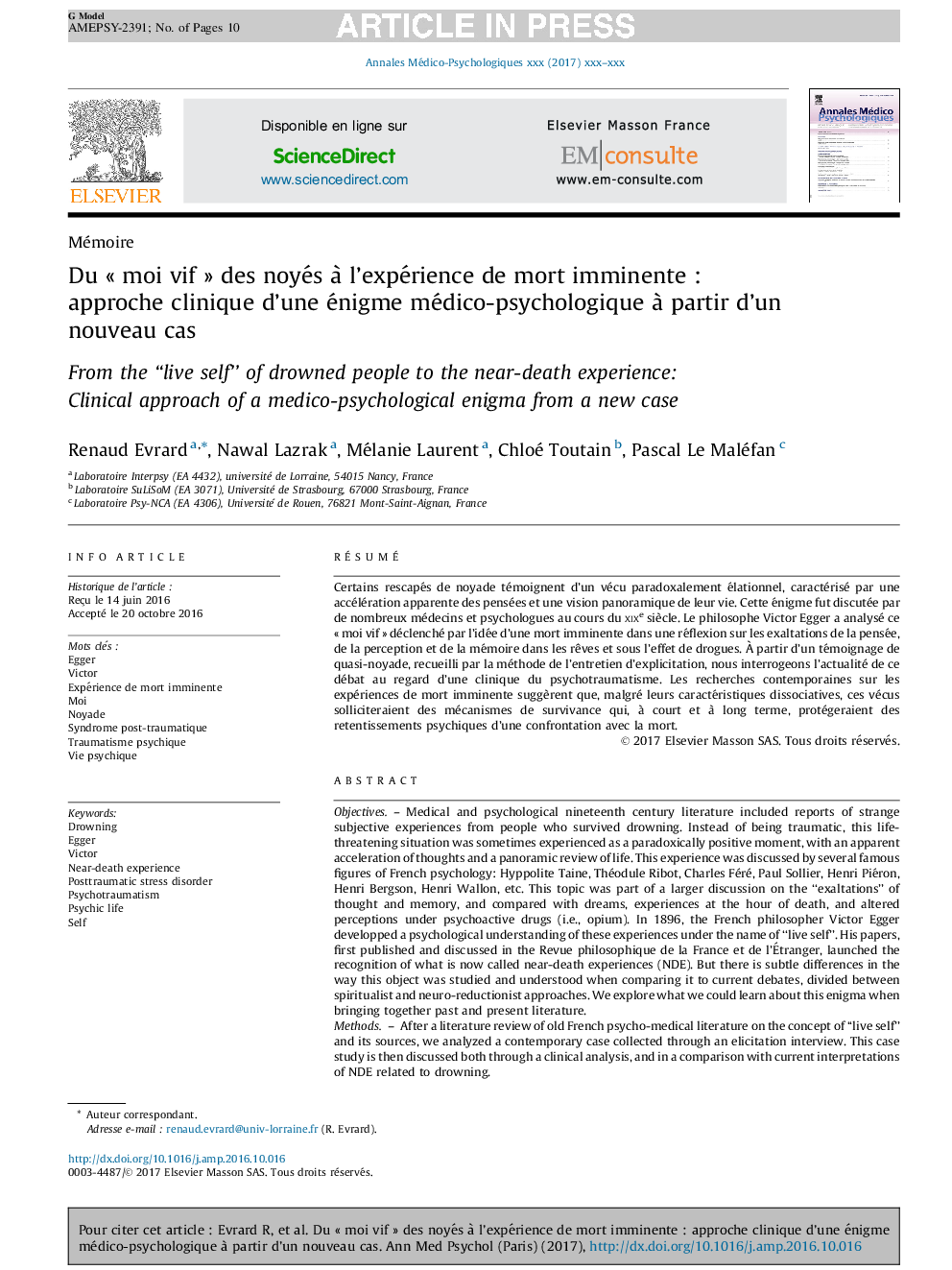| Article ID | Journal | Published Year | Pages | File Type |
|---|---|---|---|---|
| 6785441 | Annales Mdico-psychologiques, revue psychiatrique | 2018 | 10 Pages |
Abstract
The study of the “live self” of drowning survivors was once a interesting topic for psychology and medicine, but was latter lost sight, until its rediscovery under the umbrella term of “near-death experiences”. Testimonies of such experiences can still be collected and analyzed qualitatively and quantitatively. Psychological and neurological hypotheses about the triggers of such experiences let room for a psychodynamic approach in which the fright of annihilation activates a special psychosomatic circuit. This reaction may be adaptive both because it helps the person to practically save himself/herself from a life-threatening situation and because it may prevent, even long term, the clinical aftermath of such a potentially traumatic event.
Keywords
Related Topics
Health Sciences
Medicine and Dentistry
Psychiatry and Mental Health
Authors
Renaud Evrard, Nawal Lazrak, Mélanie Laurent, Chloé Toutain, Pascal Le Maléfan,
